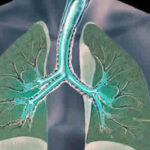Up to 30% of  patients report having used breathing techniques to control asthma symptoms.
patients report having used breathing techniques to control asthma symptoms.
According to researchers at the University of Southampton, in the UK, it’s worth the effort in selected patients.
Here’s what we know.
- Breathing techniques available for use in asthma include:
- Inspiratory muscle training
- Pursed-lip breathing
- Breathing retraining
- Healthcare professionals are skeptical.
- In part because of exaggerated and unsubstantiated claims made by proponents of specific breathing training ‘packages’, such as Buteyko practitioners.
- Does it work?
- There’s convincing evidence in people with asthma for improved…
- Symptoms
- Health status
- Psychological well-being
- Possibly reduced rescue bronchodilator medication use.
- There’s convincing evidence in people with asthma for improved…
- What it doesn’t do
- No convincing evidence that breathing training improves airway inflammation or physiology.
- And the mechanisms of benefit are largely unknown.
The bottom line?
The authors tell us, “Breathing training requires considerable commitment from the individual patient in terms of time and effort. It suits those who are happy to be involved with self-management but is unlikely to be effective in patients who prefer a ‘quick fix’, or who lack sufficient motivation.”
Sounds pretty weak.
Aside from having a strong commitment, at present it ‘s not known which category of patients with asthma are most likely to benefit from breathing training.
2/15/11 20:35 JR